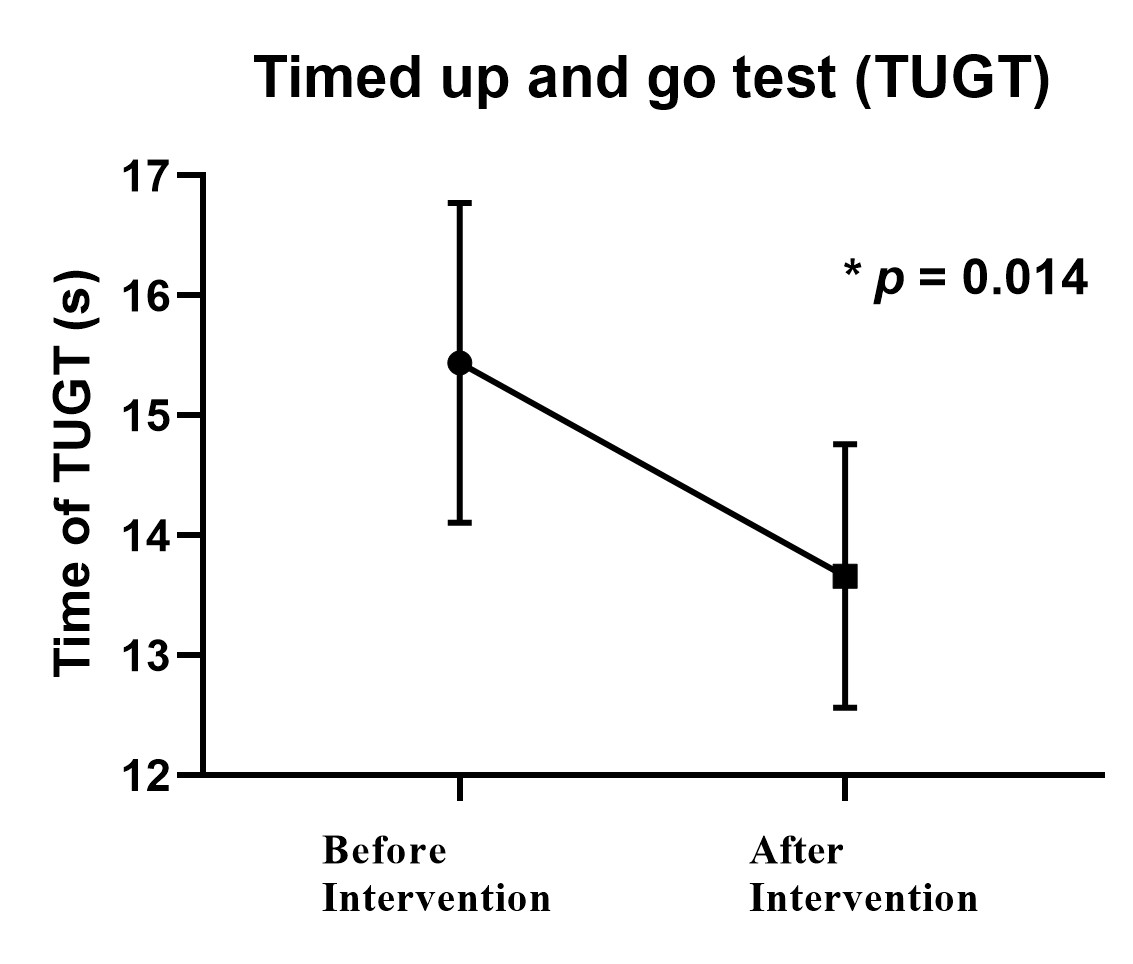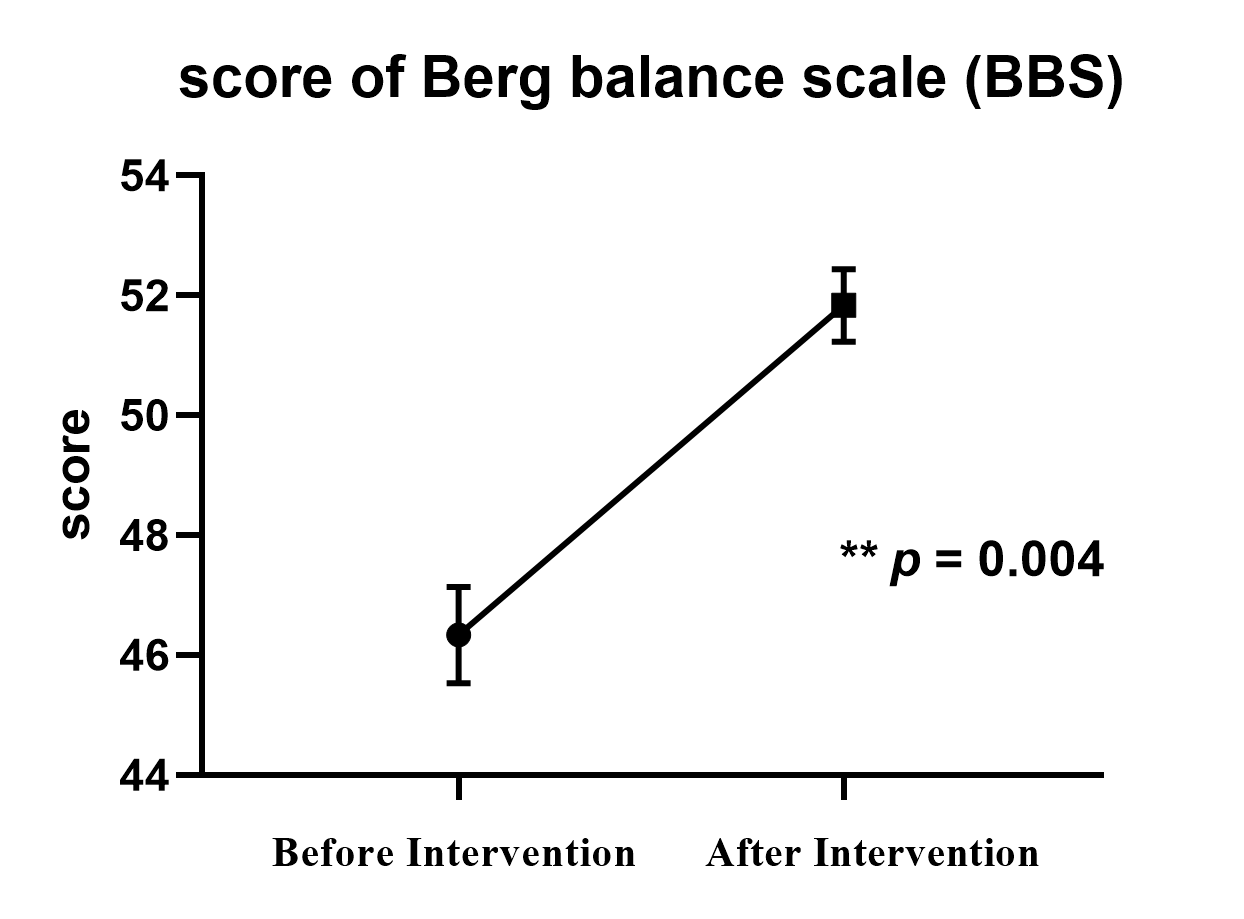Category: Parkinson’s Disease: Clinical Trials
Objective: We conducted a prospective, open-label, randomized controlled clinical trial (clinical trial identifier: ChiCTR1900023466) to evaluate the effects of different combinations of comprehensive treatment on improving gait disorders in Parkinson’s disease (PD).
Background: Gait disorder is one of the most important motor symptoms in PD. It gradually worsens with PD progression and becomes treatment resistant, with a severe impact on patients’ self-care abilities and qualities of life. Effects of traditional therapies, such as medication and deep brain stimulation, are limited. Therefore, development of novel treatments for gait disorder is urgently needed.
Method: Patients (n = 80), who were diagnosed with postural instability and gait disorder PD, were randomly assigned (1:1:1:1) to the drug-only group, the drug-combined virtual reality training (VR) group, the drug-combined audiovisual training (AV) group, or the drug-combined repetitive transcranial magnetic stimulation (rTMS) group. In addition to receiving medication, the VR group, the AV group and the rTMS group received a course of additional intervention (60 minutes / time, 2 times / day, 5 days / week, 4 weeks totally). Before intervention, 4 weeks after intervention and 12 weeks after intervention, we respectively collected demographic, results of rating scales, data of the wearable device monitoring system, functional magnetic resonance imaging, etc. The primary outcome measure is rating scales (including the Berg balance scale (BBS), the Freeze gait questionnaire, the timed up and go test (TUGT), the Movement Disorder Society’s Unified Parkinson’s Disease Rating Scale, etc.).
Results: First results from 6 subjects of the VR group showed that time of TUGT was significantly shorter at 4 weeks after intervention than before intervention (p<0.05) [figure1]. In addition, the BBS score of 4 weeks after intervention showed a significant increase from it before intervention (p<0.05) [figure2]. Further results of this clinical trial are expected to be presented in July of this year.
Conclusion: Compared with medication alone, VR training combined with medication can significantly improve gait disorders in PD patients. Further inclusion and follow-up will compare and reveal the efficacy of different comprehensive treatments on gait disorders in PD.
To cite this abstract in AMA style:
X. Huang, L. Chen, G. Cai, J. Xin, Y. Yang, Q. Ye. Improvement for Gait Disorders in Parkinson’s Disease Through Novel Comprehensive Treatment (IMPROVE study): A Prospective, Open-label, Randomized Controlled Clinical Trial [abstract]. Mov Disord. 2020; 35 (suppl 1). https://www.mdsabstracts.org/abstract/improvement-for-gait-disorders-in-parkinsons-disease-through-novel-comprehensive-treatment-improve-study-a-prospective-open-label-randomized-controlled-clinical-trial/. Accessed February 11, 2026.« Back to MDS Virtual Congress 2020
MDS Abstracts - https://www.mdsabstracts.org/abstract/improvement-for-gait-disorders-in-parkinsons-disease-through-novel-comprehensive-treatment-improve-study-a-prospective-open-label-randomized-controlled-clinical-trial/


